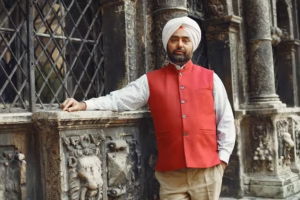
indian idol
Since its inception in 2004, Indian Idol has become a staple of Indian television. As one of the longest-running and most popular singing reality shows in the country, Indian Idol has witnessed an evolution that mirrors the changing tastes and expectations of its audience. Yet, despite the rise of numerous other reality shows, Indian Idol continues to reign supreme, captivating millions of viewers every season. What is it about the show that has kept it relevant for nearly two decades? What makes it stand out among the plethora of reality-based programs in the Indian television landscape?
To answer this question, we need to look at several factors that have contributed to the longevity and success of Indian Idol. From its unique format to its ability to tap into the emotions of the audience, and from the star-studded judging panel to the social media engagement, Indian Idol has become more than just a singing competition. It has become a cultural phenomenon. This article explores the reasons why Indian Idol continues to capture the hearts of viewers and remains one of the most-watched reality shows in India.
Key Takeaways
Raw Talent Discovery: Indian Idol has always focused on discovering and showcasing raw, untapped talent from across India, creating a deep connection with viewers.
Emotional Connection: The personal stories of contestants, their struggles, and their triumphs resonate deeply with the audience, making the show more than just a competition.
Engagement with Viewers: The interactive voting system allows audiences to play a significant role in the competition, ensuring viewer engagement and investment in the show’s outcome.
Star Judges: The panel of judges, consisting of renowned musicians, adds credibility and entertainment value to the show, making it more than just a singing competition.
A Legacy of Success: Many Indian Idol winners and finalists have gone on to successful careers in the music industry, further cementing the show’s impact.
The Blend of Drama and Music: The exciting format, filled with surprises, eliminations, and musical performances, keeps the audience hooked from season to season.
The Birth of a Phenomenon
Indian Idol was launched by Sony Entertainment Television in 2004 as an adaptation of the global Idol format, with the goal of finding India’s next singing superstar. The show’s debut season introduced a fresh and unique concept to Indian television: a nationwide singing competition with a public voting system. It instantly struck a chord with audiences who were excited by the idea of discovering unknown talent. The show’s format allowed viewers to not only see raw talent from across the country but also actively participate in the outcome of the competition through voting.
Also Read: How to Increase Your Business Revenue With Proven Strategies?
The combination of interactive voting, nationwide auditions, and the platform’s promise of turning an ordinary person into a singing sensation created a buzz that quickly captivated the Indian television audience. As the seasons progressed, Indian Idol became a household name, transforming both contestants and the show’s judges into stars in their own right.
Also Read: Loki Season 2: Exploring The Darker Corners Of The Multiverse
Celebrating Raw Talent from Across India
At its core, Indian Idol celebrates raw, unfiltered talent. One of the primary reasons why the show continues to resonate with viewers is its emphasis on discovering talent from every corner of India. The show’s auditions travel across the country, giving voice to people from different regions, cultures, and backgrounds. In a vast country like India, with its diversity of languages, traditions, and styles of music, Indian Idol provides an inclusive platform where anyone with a passion for music can dream of stardom.
Also Read: The Best Comedy Films To Watch For A Good Laugh
Contestants on the show come from all walks of life—some are from metropolitan cities, while others hail from small villages and towns. These stories are compelling and relatable, as many contestants have faced struggles and obstacles to get to the stage. Whether it’s a person who has left their family to chase their dreams in the city or someone who has faced personal hardships, their journeys evoke strong emotions from the audience. This relatability has played a key role in the sustained popularity of Indian Idol. The show does not just look for great singers but also highlights the personal growth and transformation of contestants.
Also Read: Movement In The Modern World: The Artistry Of Contemporary Dance
Moreover, Indian Idol embraces different regional languages, showcasing singers who can sing in Hindi, Tamil, Bengali, Punjabi, and other Indian languages. This variety adds depth to the show, as viewers can enjoy diverse musical genres and connect with performers in their native tongue.
Also Read: Top 10 Jazz Dance Moves You Need To Know
The Emotional Connect
One of the most powerful aspects of Indian Idol is its ability to create an emotional connection with the audience. The show goes beyond the competition by focusing on the personal stories of the contestants, their struggles, dreams, and ambitions. This emotional depth is one of the primary reasons why the show has been able to keep audiences invested season after season.
Every contestant’s journey is documented, allowing viewers to see not only their musical progress but also their emotional evolution. From a contestant’s first audition to their experience on the stage, the show crafts stories that tug at the heartstrings of the audience. The struggles that contestants overcome—whether it’s their journey from a small village to the big city or their battle with self-doubt—make them incredibly relatable.
The show has become a platform not just for showcasing vocal talent, but for empowering individuals to share their personal stories. Many viewers see a reflection of their own experiences in these contestants and root for them as they navigate the ups and downs of the competition. The emotional highs and lows, the victories, and the eliminations make Indian Idol more than just a singing contest; it’s a human story of perseverance, passion, and dreams.
The Judges: A Star-Studded Panel

Another key factor behind the enduring success of Indian Idol is its panel of judges. Over the years, the show has been graced by some of the most iconic names in the Indian music industry. From playback singers like Kailasa Kher, Sonu Nigam, and Shaan to composers like Anu Malik, Vishal Dadlani, and Himesh Reshammiya, the judges on Indian Idol have been a blend of musical legends and contemporary voices. The credibility they bring to the show is immense, and their expertise in evaluating performances has made the competition more exciting for both contestants and viewers.
The judges also have a unique dynamic that adds to the show’s entertainment factor. Their interactions with the contestants and each other are often filled with humor, wit, and banter. These moments of camaraderie and playful rivalry between the judges keep the audience engaged. While they offer constructive criticism to contestants, they also provide emotional support, guiding them to improve and move forward. This balance of tough love and encouragement creates a wholesome experience for both the contestants and viewers.
The judges also bring a level of authenticity to the show. Their status as successful musicians and industry veterans means that their opinions hold weight, and their feedback is respected by contestants. The audience, too, looks forward to hearing their insights and views on performances. Over the years, the dynamic between the judges and the contestants has become an essential aspect of Indian Idol.
The Power of Public Voting and Viewer Engagement
Unlike many other reality shows, Indian Idol allows viewers to vote for their favorite contestants, making the audience an active participant in the competition. Public voting is a cornerstone of the show, and it creates a direct connection between the audience and the contestants. It’s not just about watching the show; it’s about supporting the contestants and influencing the outcome.
The voting system gives power to the viewers, ensuring that the competition is based on audience preferences rather than just the judges’ decisions. This democratic approach makes viewers feel like they have a stake in the competition. Over the years, the audience’s role in shaping the show’s outcome has only increased, with social media platforms and mobile apps making it easier for viewers to vote. This level of engagement fosters a sense of community among viewers, as they rally behind their favorite contestants, share their opinions, and discuss performances.
Moreover, Indian Idol’s use of social media platforms has allowed it to reach younger audiences and create a larger digital footprint. Contestants have found new ways to connect with fans through social media, and the show has tapped into this growing trend to ensure its relevance in the digital age. Viewers often engage in live discussions on platforms like Twitter, Facebook, and Instagram, making the viewing experience more interactive and engaging.
The Format: A Perfect Blend of Drama and Music
The format of Indian Idol has also played a crucial role in keeping the show exciting. It combines elements of drama, suspense, and musical performances to keep audiences hooked. Each season is filled with themes and challenges that keep the contestants on their toes. From special tribute nights to guest performances and themed episodes, there is always something new for the audience to look forward to.
The structure of the show, with its gradual eliminations, creates a sense of anticipation. As contestants perform, the public votes, and the competition tightens, making the stakes higher each week. The thrill of seeing who will be eliminated and who will survive to the next round keeps the show unpredictable and engaging. The finale, where the best contestants compete for the coveted title, is always a grand spectacle, keeping the audience on the edge of their seats.
The blend of music and drama, the unpredictable eliminations, and the suspense-filled episodes create an atmosphere of excitement that keeps viewers coming back for more.
The Legacy and Impact of Indian Idol
Over the years, Indian Idol has left a lasting impact on the Indian music industry. Many of its winners and finalists have gone on to have successful careers as playback singers in Bollywood. For example, Abhijeet Sawant, the winner of the first season, went on to become a successful playback singer and has maintained a strong fan following. Other winners like Sandeep Acharya and Monali Thakur have also found success in the music industry, which only adds to the credibility of the show.
The legacy of Indian Idol is evident in the number of artists it has introduced to the world. The show has not only shaped careers but has also created a platform for budding singers to gain national recognition. Over the years, the show has evolved, incorporating new elements and keeping pace with changing tastes and trends in the music industry.
Also Read : आंचल सिंह ने स्वीकार किया कि पिछले छह महीनों में उनके पास कोई काम नहीं है: ‘सच कबसे इतना साहसी हो गया?’
Conclusion
Indian Idol has become more than just a reality show—it has become an integral part of India’s cultural fabric. The show’s ability to consistently showcase diverse musical talent, coupled with its emotional appeal, has made it a hit across generations. Whether it’s the captivating personal stories of the contestants, the star-studded panel of judges, the interactive format, or the sheer excitement of watching budding talent compete, Indian Idol has created a lasting legacy in Indian television.
It is the combination of these elements that has allowed Indian Idol to continue to captivate audiences year after year. As the show enters
its 2024 season, there is no doubt that it will continue to entertain, inspire, and touch the hearts of millions of viewers across the country.



